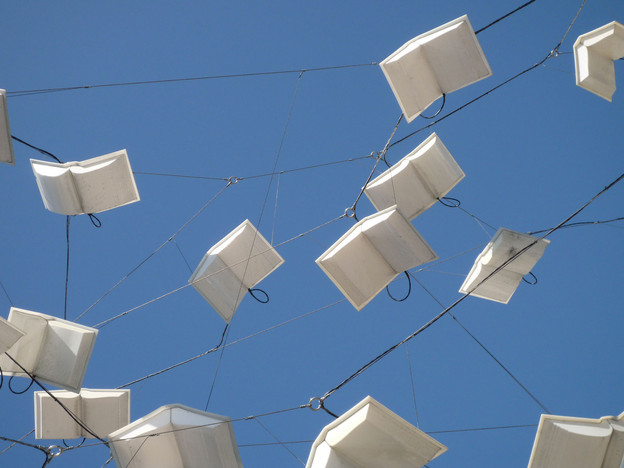Transfolding the in/between

If being transient, does it follow that the self of sien should breach bone?
If we transistor, does it follow that our tran and tor should be brothers, be sisters?
If to transcribe intends the scribe, does the train plunge off the page’s margins?
If s/he transpires, does the cause stem from a conflagration, a pyre, and so a sublimation?
If we transmit, does it follow that the you and the i meet in a we?
Does transpose actually posit anything?
How do we keep this page, this site, which is so transient, transposed and transitory, honest?
The Folding Borders commentaries attempted entrances into some of Canada’s poetic laboratories and, tempted by their hybrid languages, to traverse some of their experiments. Of course, many laboratories still remain unopened, many experiments still to be explored. A partial, random and certainly not exclusive list of further folds or essais might include The Institute for Domestic Research (Jacqueline Leggatt, Christine Stewart, Catriona Strang), the folk research of Phil Hall, the lingual bodies of Adeena Karasick, the archival delves of Kate Eichhorn, the dist/epics silver car sessions of Jake Kennedy and kevin mcpherson eckhoff, the performative inscriptions of Michael V. Smith, the sounding of Geneviève Letarte, the urbanism of Jeff Derksen, the interdisciplinary experiments of Chantal Neveu, the poetic medias of Jolanta Lapiak, the collaborative and visual work of Gary Barwin.
In archiving a present, in struggling pages into publicness, in protagonising our multiplicities, in socialing the labour of our languages, might we become new geographers of our own imagination? Not to progress but to egress our digressions. Slick necessity of lexical pavements. Voweled vocables perform, vacating yet voracious. Prepositions commit the oblige of speaking riffs, of riffing speech. What will margins riff for us? What resolutions will we chew? What dialogues will we tenor? Questions resist resolve.
Folding Borders: Experimenting in the Canadian Laboratory